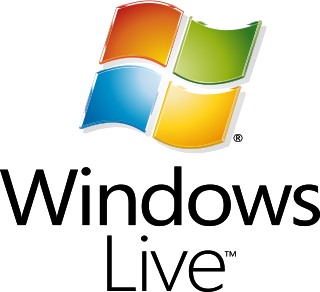
Iran's telecommunications industry is almost entirely state-owned, dominated by the Telecommunication Company of Iran (TCI). Fixed-line penetration in 2004 was relatively well-developed by regional standards, standing at 22 lines per 100 people, higher than Egypt with 14 and Saudi Arabia with 15, although behind the UAE with 27. Iran had more than 1 mobile phone per inhabitant by 2012.

MSN is an American web portal and related collection of Internet services and apps for Windows and mobile devices, provided by Microsoft and launched on August 24, 1995, alongside the release of Windows 95.

The original incarnation of Yahoo! Inc. was an American multinational technology company headquartered in Sunnyvale, California. Yahoo was founded by Jerry Yang and David Filo in January 1994 and was incorporated on March 2, 1995. Yahoo was one of the pioneers of the early internet era in the 1990s. Marissa Mayer, a former Google executive, served as CEO and President of Yahoo from 2012 until June 2017.

China Mobile is the trade name of both China Mobile Limited and its ultimate controlling shareholder, China Mobile Communications Group Co., Ltd., is a Chinese state-owned telecommunications company. It provides mobile voice and multimedia services through its nationwide mobile telecommunications network across mainland China and Hong Kong. China Mobile is the largest wireless carrier in China, with 945.50 million subscribers as of June 2021. China Mobile was ranked #25 in Forbes' Global 2000 in 2023.
Verizon is an American wireless network operator that previously operated as a separate division of Verizon Communications under the name Verizon Wireless. In a 2019 reorganization, Verizon moved the wireless products and services into the divisions Verizon Consumer and Verizon Business, and stopped using the Verizon Wireless name. Verizon has 114.8 million subscribers as of March 31, 2024. It currently has the largest network in the United States with their LTE network covering 70% of the United States.
Yahoo! Search is a search engine owned and operated by Yahoo!, using Microsoft Bing to power results.

Windows Live is a discontinued brand name for a set of web services and software products developed by Microsoft as part of its software-as-a-service platform. Chief components under the brand name included web services, several computer programs that interact with the services, and specialized web services for mobile devices.

Opera Mini is a mobile web browser made by Opera. It was primarily designed for the Java ME platform, as a low-end sibling for Opera Mobile, but as of 2022 only the Android build was still under active development. It had previously been developed for iOS, Windows 10 Mobile, Windows Phone 8.1, BlackBerry, Symbian, and Bada.

Microsoft Advertising is an online advertising platform developed by Microsoft, where advertisers bid to display brief ads, service offers, product listings and videos to web users. Provides pay per click advertising on search engines Bing, Yahoo! and DuckDuckGo, as well as on other websites, mobile apps, and videos.

Microsoft Bing, commonly referred to as Bing, is a search engine owned and operated by Microsoft. The service traces its roots back to Microsoft's earlier search engines, including MSN Search, Windows Live Search, and Live Search. Bing offers a broad spectrum of search services, encompassing web, video, image, and map search products, all developed using ASP.NET.
Mobile television is television watched on a small handheld or mobile device, typically developed for that purpose. It includes service delivered via mobile phone networks, received free-to-air via terrestrial television stations, or via satellite broadcast. Regular broadcast standards or special mobile TV transmission formats can be used. Additional features include downloading TV programs and podcasts from the Internet and storing programming for later viewing.
Yahoo! was founded in January 1994 by Jerry Yang and David Filo, who were electrical engineering graduates at Stanford University when they created a website named "Jerry and David's Guide to the World Wide Web". The Guide was a directory of other websites, organized in a hierarchy, as opposed to a searchable index of pages. In April 1994, Jerry and David's Guide to the World Wide Web was renamed "Yahoo!". The word "YAHOO" is a backronym for "Yet Another Hierarchically Organized Oracle" or "Yet Another Hierarchical Officious Oracle." The yahoo.com domain was created on January 18, 1995.

eBuddy is a privately held Dutch software company that offers instant messaging services. As of 2011, eBuddy reported 100 million downloads. The company's flagship service is XMS, a proprietary cross-platform instant messaging service. After some changes of ownership, the company is now again owned by its original founders, Onno Bakker and Jan-Joost Rueb.

Ovi by Nokia was the brand for Nokia's Internet services. The Ovi services could be used from a mobile device, computer or via the web. Nokia focused on five key service areas: Games, Maps, Media, Messaging and Music. Nokia's aim with Ovi was to include third party developers, such as operators and third-party services like Yahoo's Flickr photo site. With the announcement of Ovi Maps Player API, Nokia started to evolve their services into a platform, enabling third parties to make use of Nokia's Ovi services.

Yahoo! Kids is a public web portal provided by Yahoo! Japan to find age-appropriate online content for children between the ages of 4 and 12. This site was formerly available in English via Yahoo!, where it was known as Yahooligans! until December 2006, and in Korean via Yahoo! Korea.
ooVoo was a video chat and messaging app developed by ooVoo LLC and owned by Krush Technologies, LLC. ooVoo had applications for Android, iOS, Mac OS X, Microsoft Windows, Windows Phone, and Facebook. The original Microsoft Windows app was released in 2007. It was discontinued on November 25, 2017.
Phone hacking is the practice of exploring a mobile device, often using computer exploits to analyze everything from the lowest memory and CPU levels up to the highest file system and process levels. Modern open source tooling has become fairly sophisticated to be able to "hook" into individual functions within any running app on an unlocked device and allow deep inspection and modification of its functions.
Microsoft mobile services are a set of proprietary mobile services created specifically for mobile devices; they are typically offered through mobile applications and mobile browser for Windows Phone platforms, BREW, and Java. Microsoft's mobile services are typically connected with a Microsoft account and often come preinstalled on Microsoft's own mobile operating systems while they are offered via various means for other platforms. Microsoft started to develop for mobile computing platforms with the launch of Windows CE in 1996 and later added Microsoft's Pocket Office suite to their Handheld PC line of PDAs in April 2000. From December 2014 to June 2015, Microsoft made a number of corporate acquisitions, buying several of the top applications listed in Google Play and the App Store including Acompli, Sunrise Calendar, Datazen, Wunderlist, Echo Notification Lockscreen, and MileIQ.









